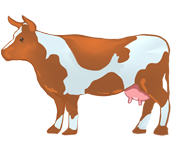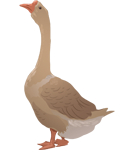Environment
This topic focuses on ecological issues, the role of mankind and what we can do for the sustainable future of our planet
Nutrition
Around 25% of the average European footprint derives from the area of nutrition. Artificial fertilizers and pesticides are used more and more in agriculture which is becoming ever more energy-intensive. The production of food, especially meat, requires huge areas of land. However, arable land in Africa, Asia and Latin America is not only sold for the production of food, but also for the production of biomass fuel and industrial raw materials. This so called Land Grabbing leads, for example, to the growing of tomatoes and asparagus on intensively watered fields in Ethiopia for international hotel chains or of corn and oil palms for the production of biomass fuels in Europe, while large sections of the local population are undernourished and the country must import food itself.
In the industrialised countries people eat an average of 80kg of meat per year, in developing countries it is 32kg. Cultural as well as religious factors are responsible for this imbalance, but even more a lower rate of production. The increasing consumption of meat has as a consequence that 1/3 of the global grain harvest is fed to farm animals. A strange detail when one considers that the global population is set to increase and, along with it, the demand for food. However, the environment suffers due to increasing meat production. More and more rainforests are cleared for cattle, masses of water are used in the industry and the planting of monoculture crops also has negative effects on the Earth and biodiversity.
Task
Try to find out how much meat the average German eats in the course of his/her life and choose the right number from the drop down list.







Sources
http://www.footprintrechner.at/footprint/info
http://www.fao.org/docrep/018/i3107e/i3107e00.htm
http://www.boell.de/downloads/2013-01-Fleischatlas.pdf
Immel, Karl-Albrecht/ Tränkle, Klaus (2011): Aktenzeichen Armut. Globalisierung in Texten und Grafiken. Wuppertal: Peter Hammer Verlag
